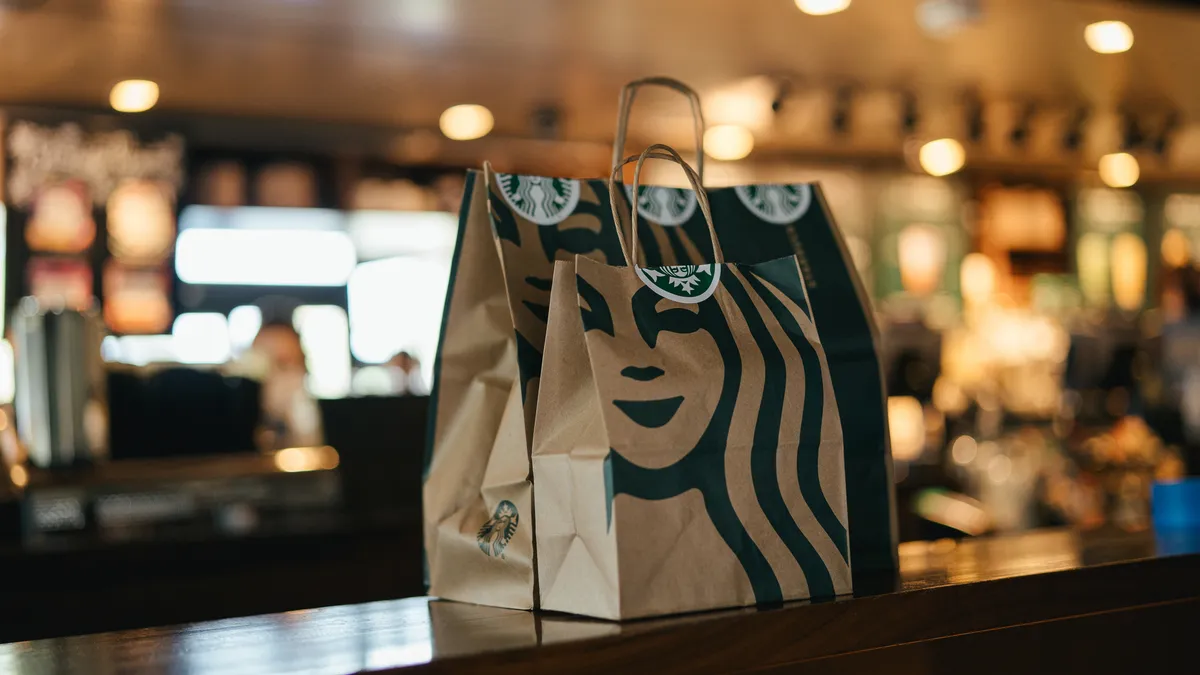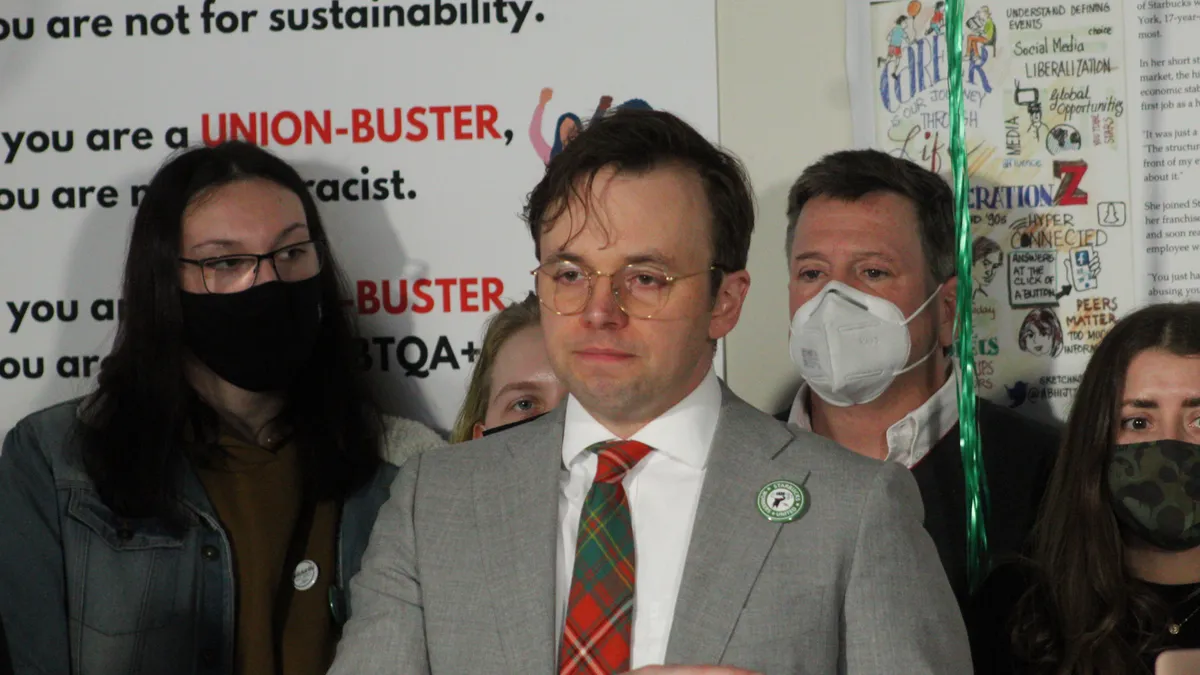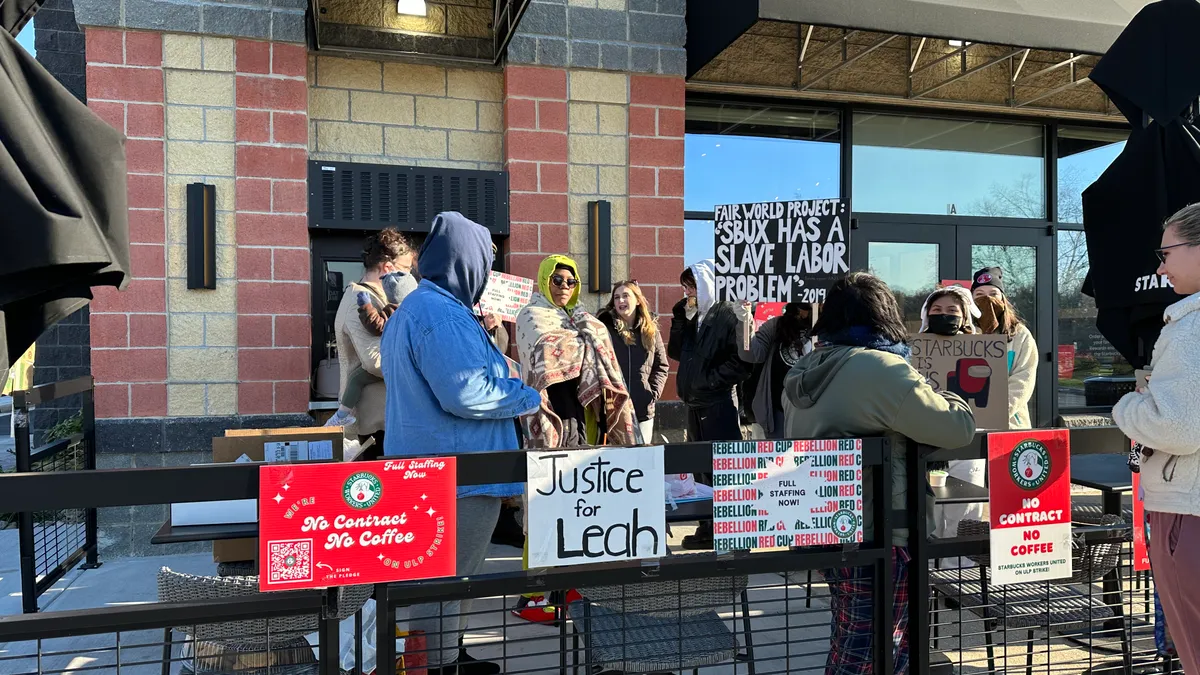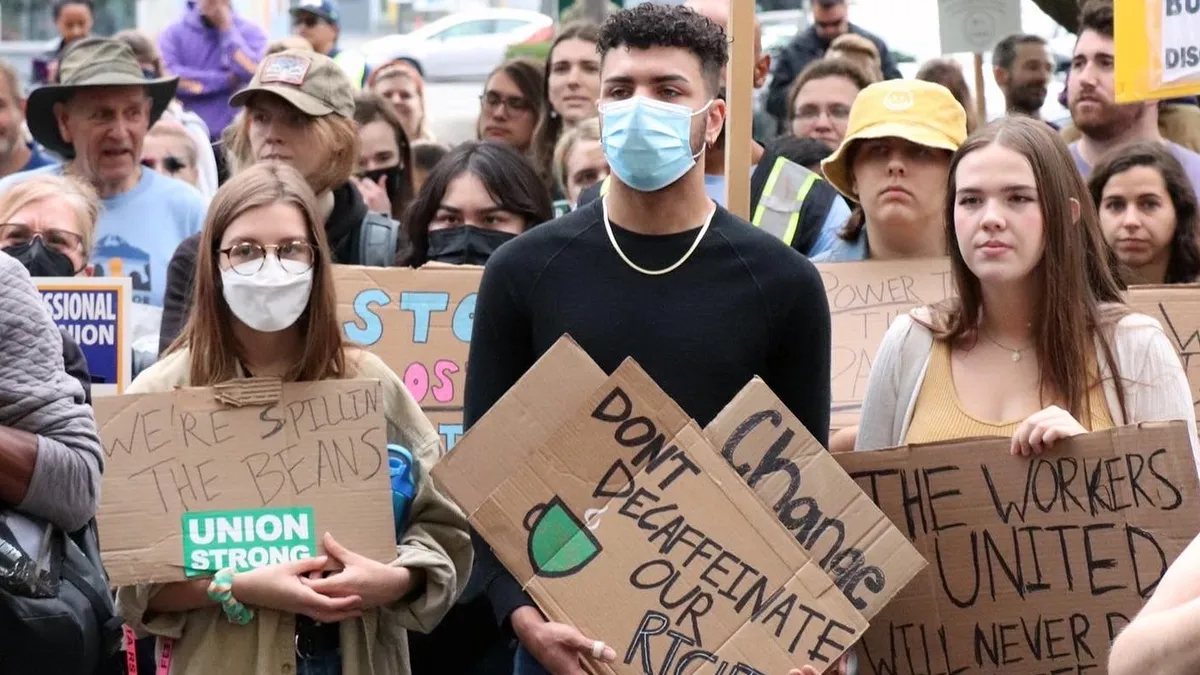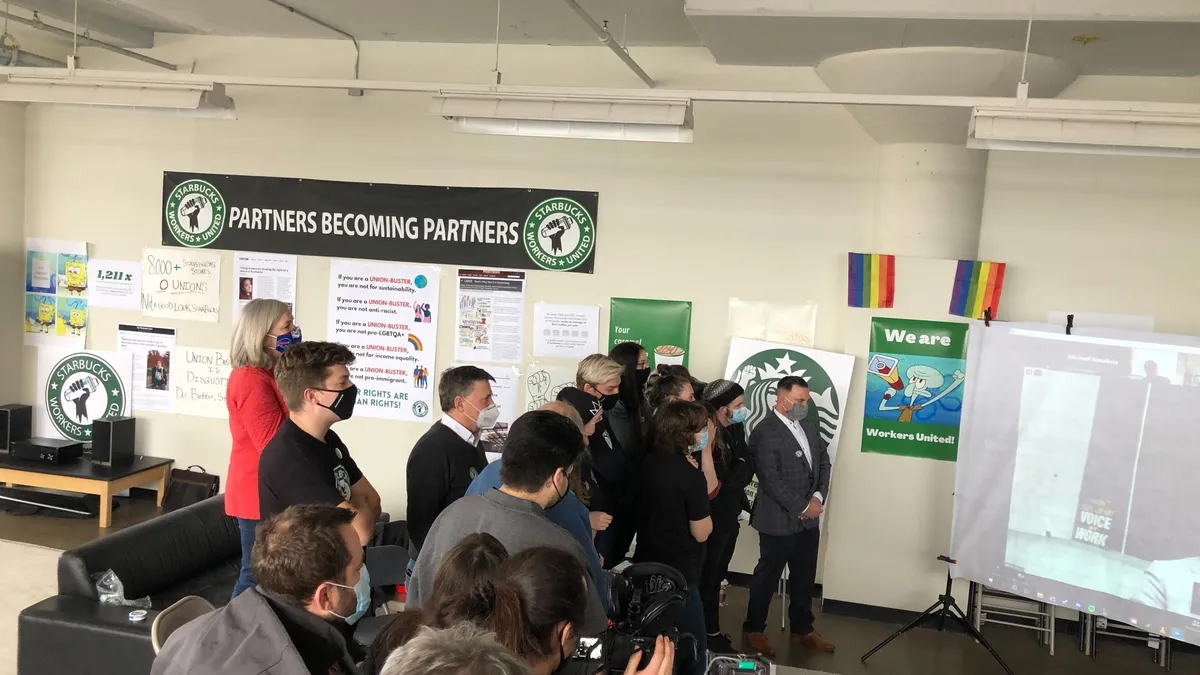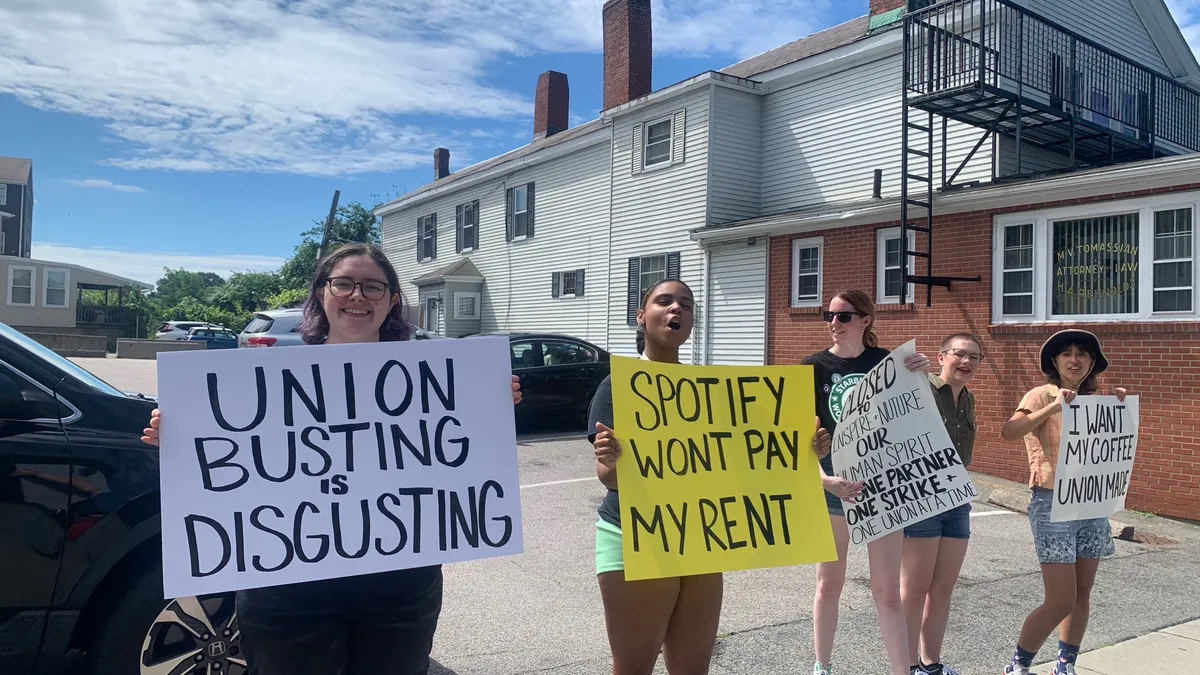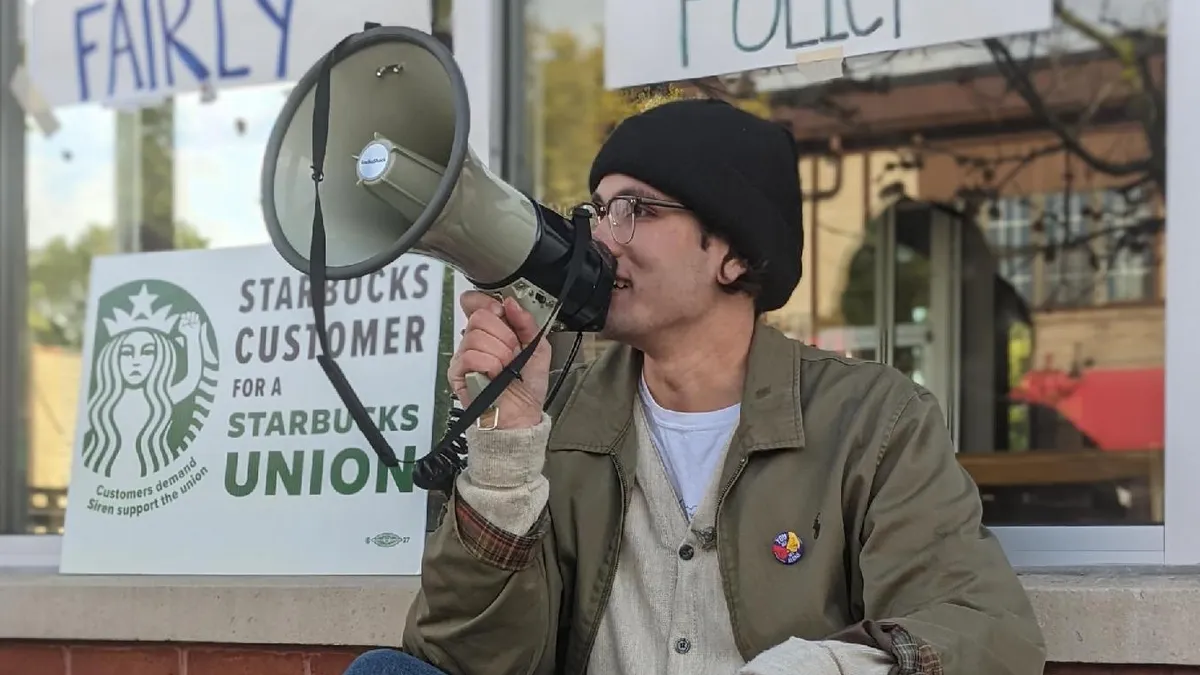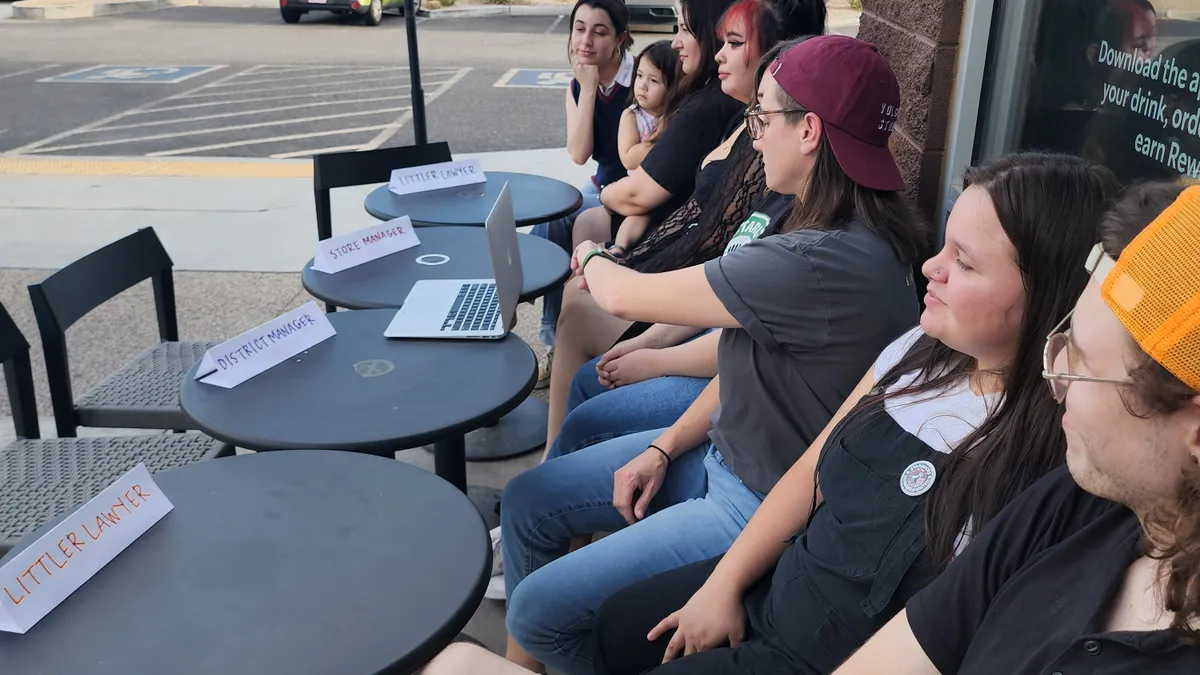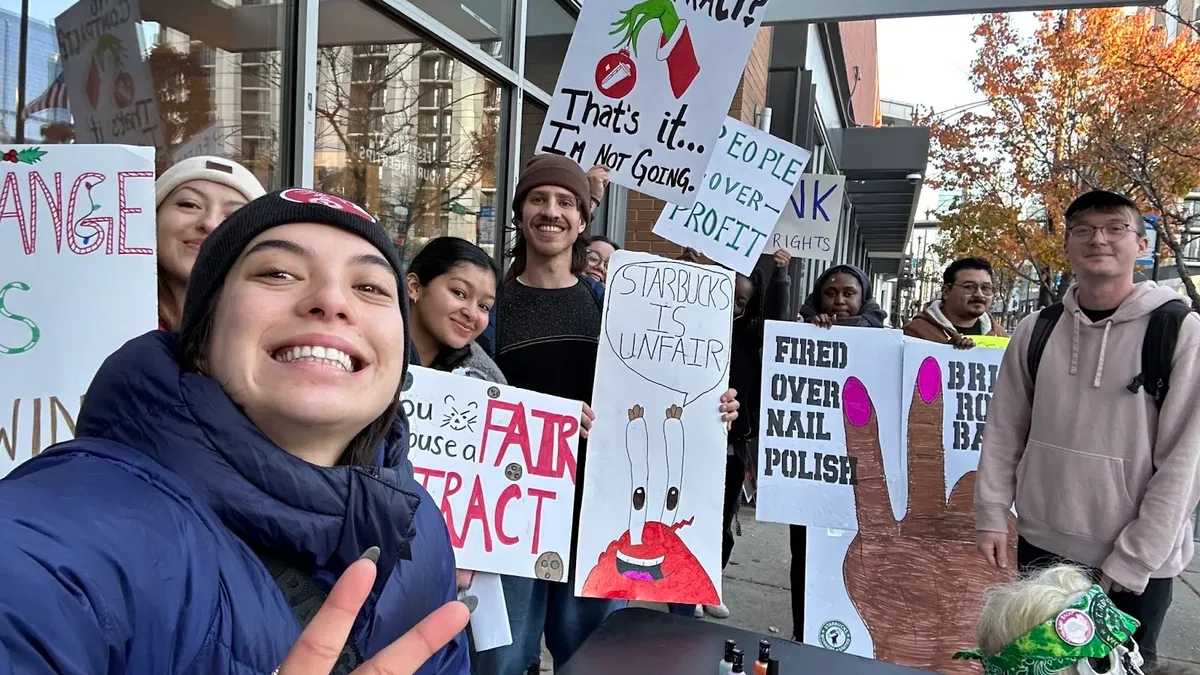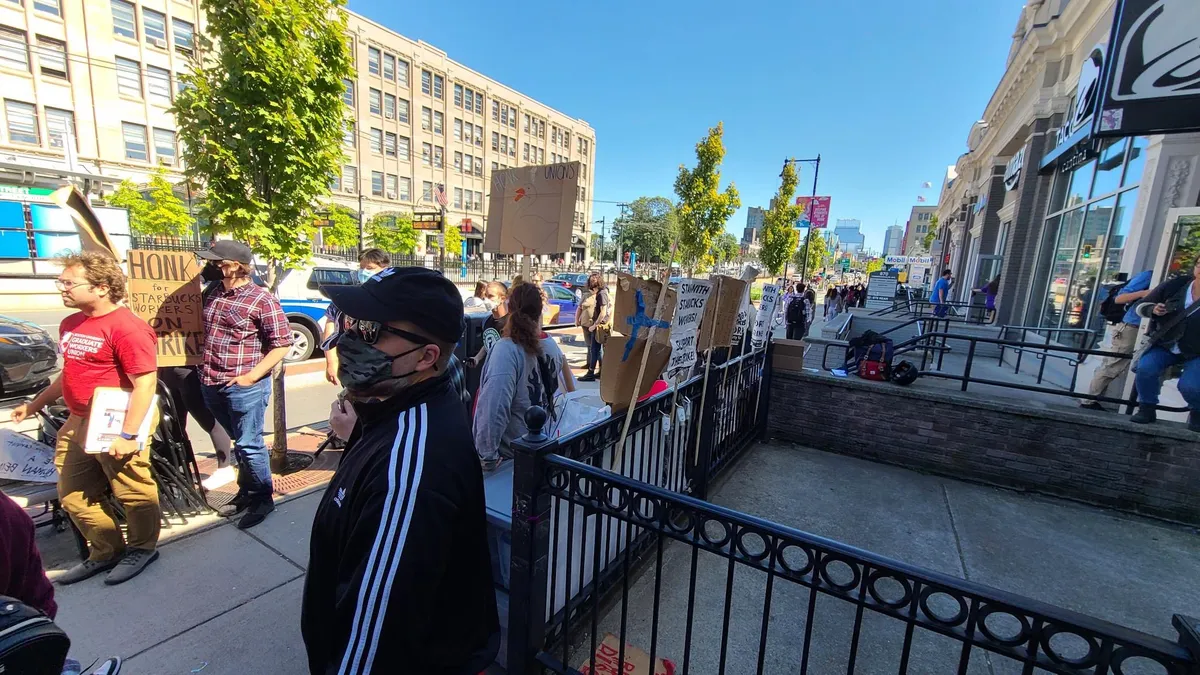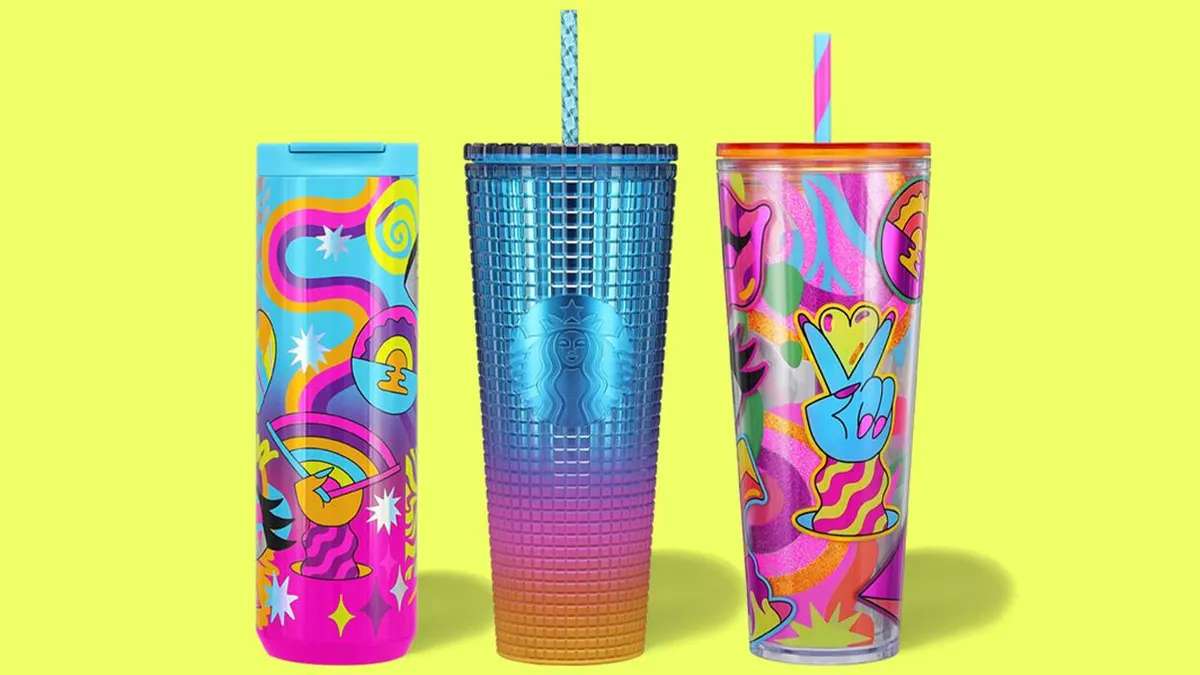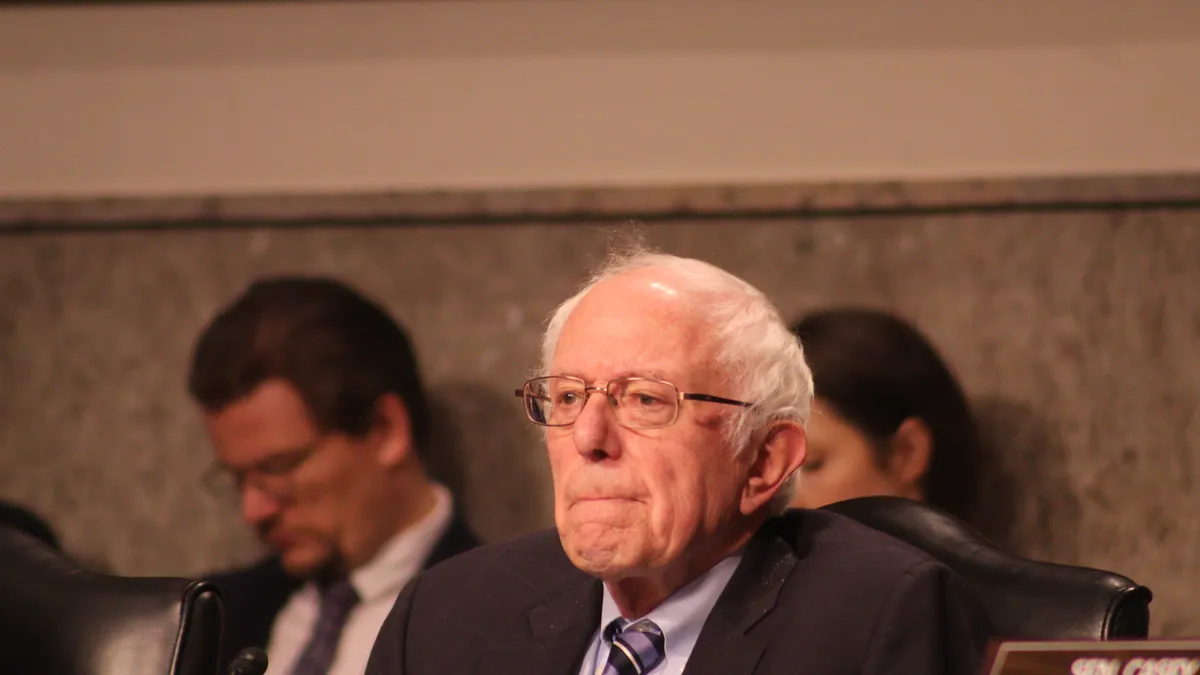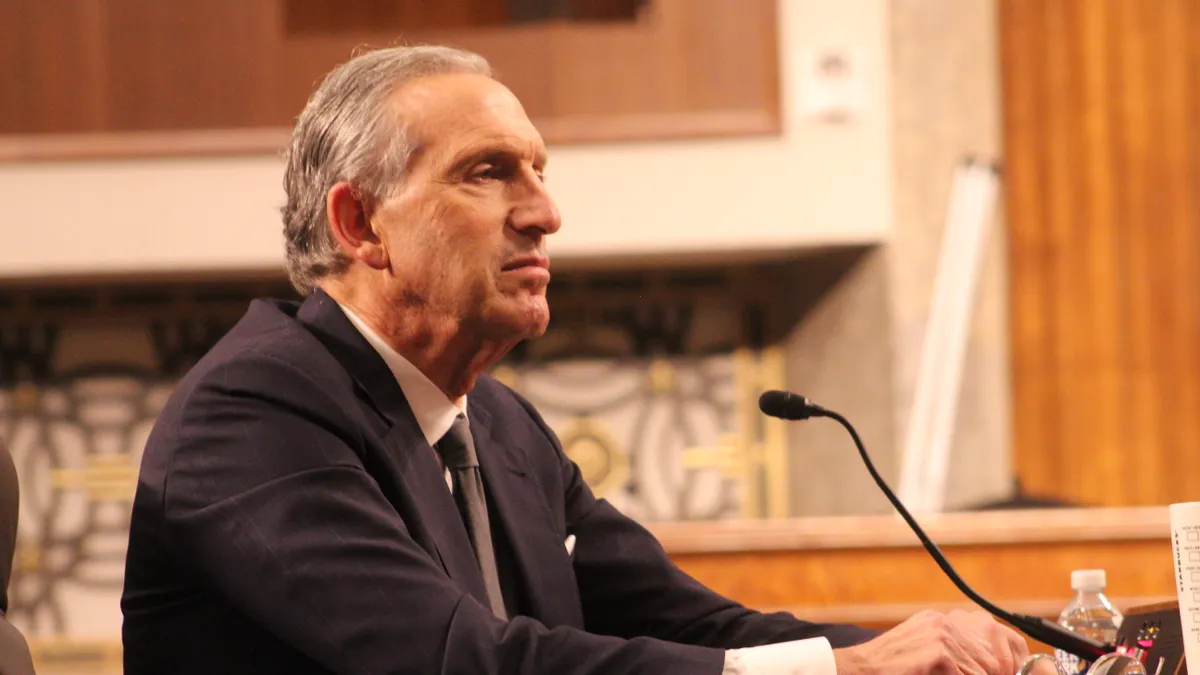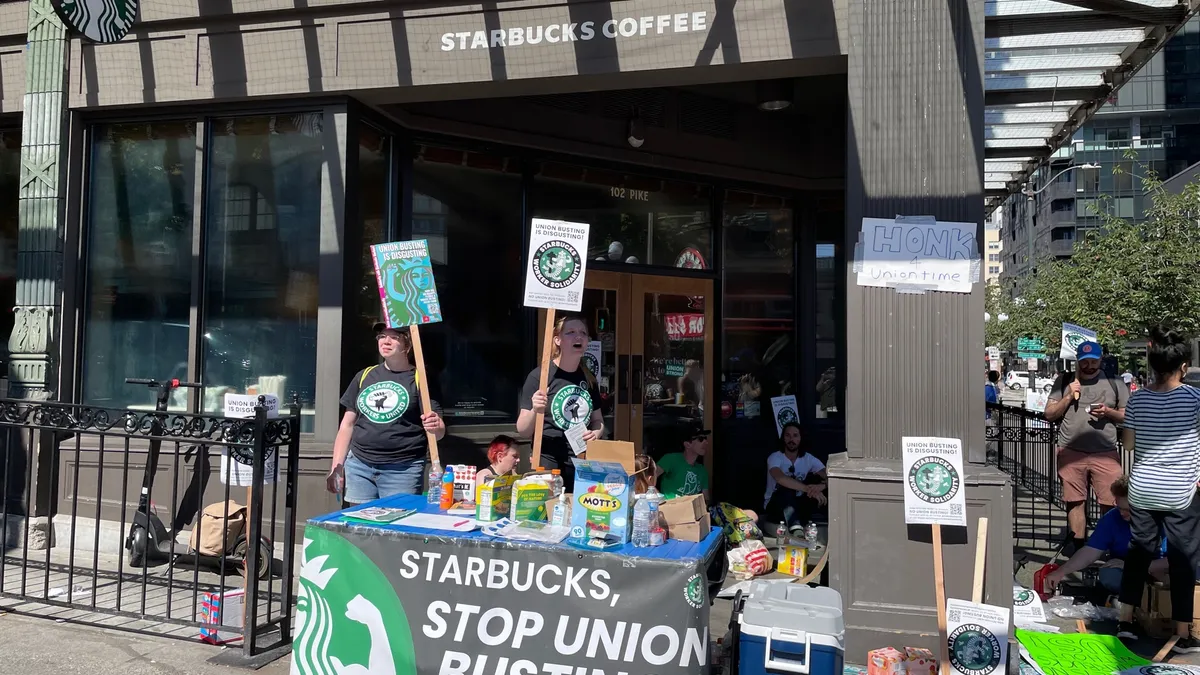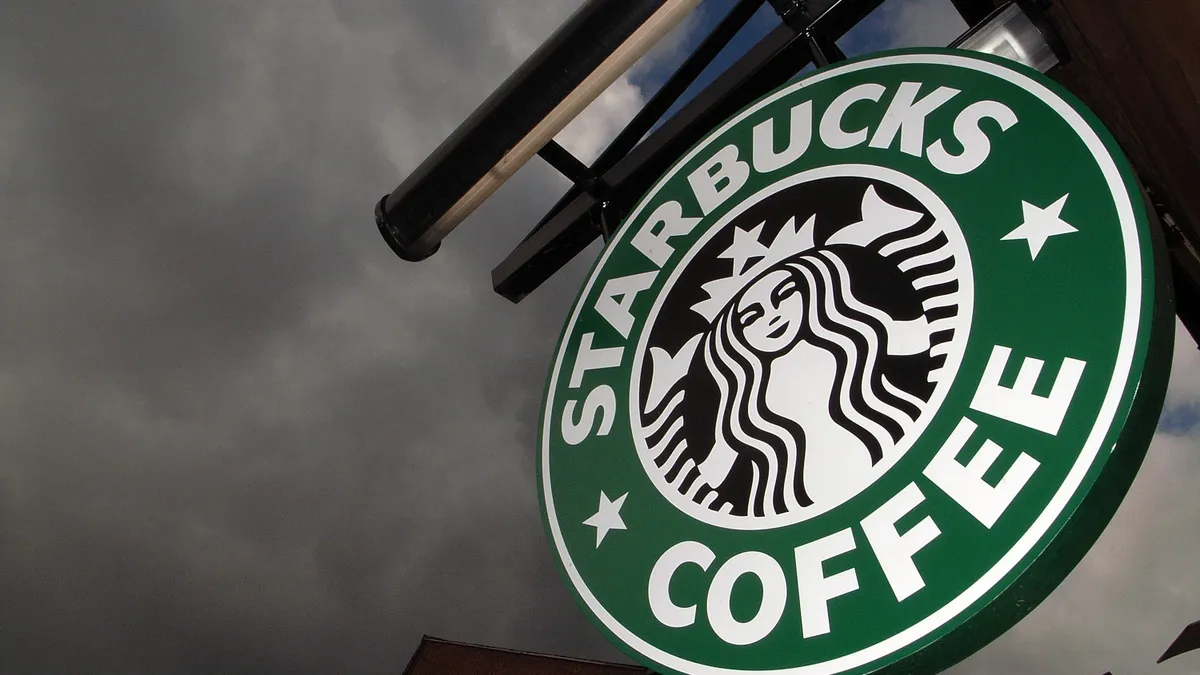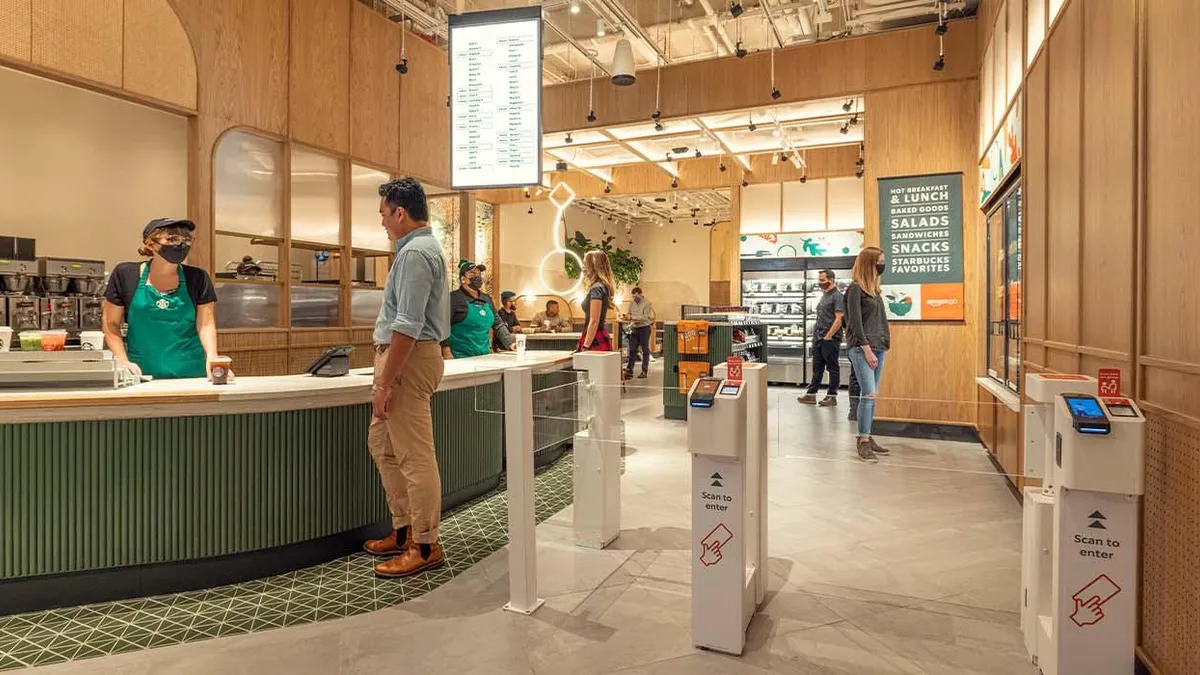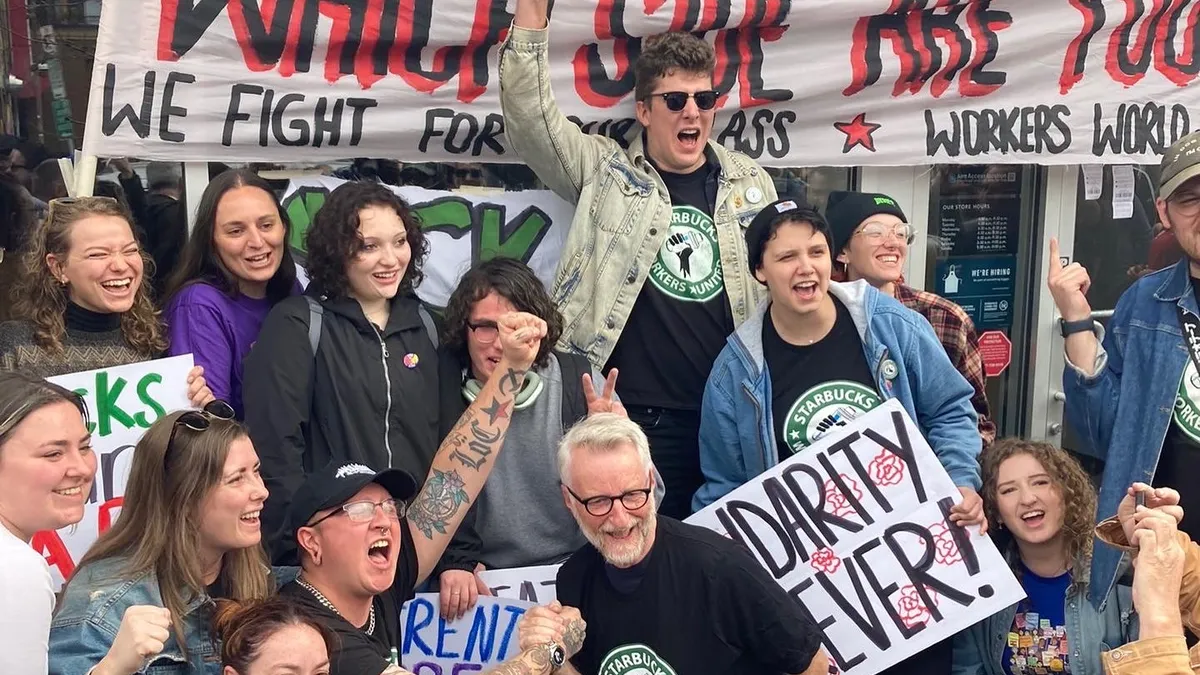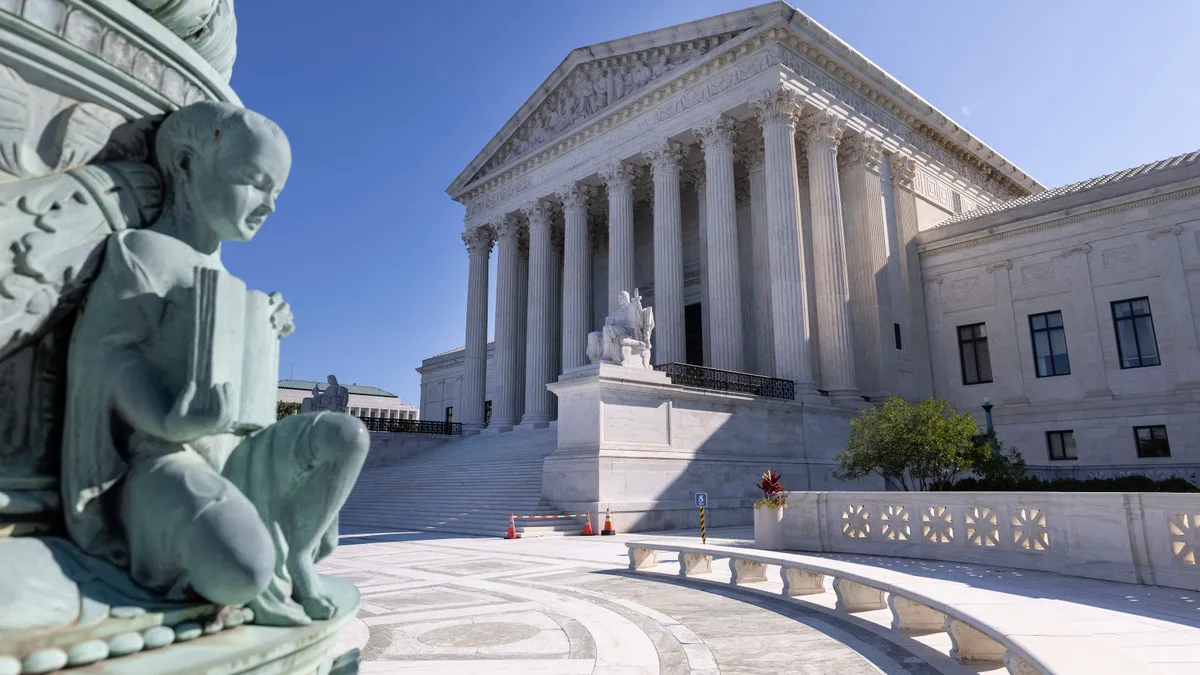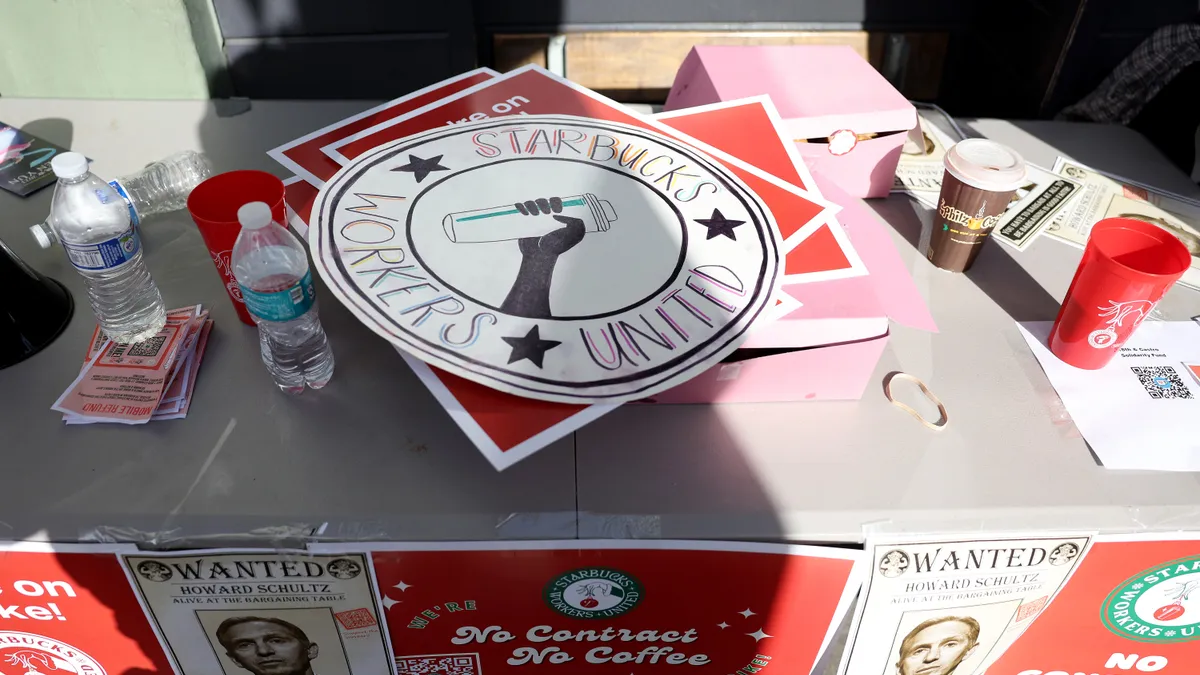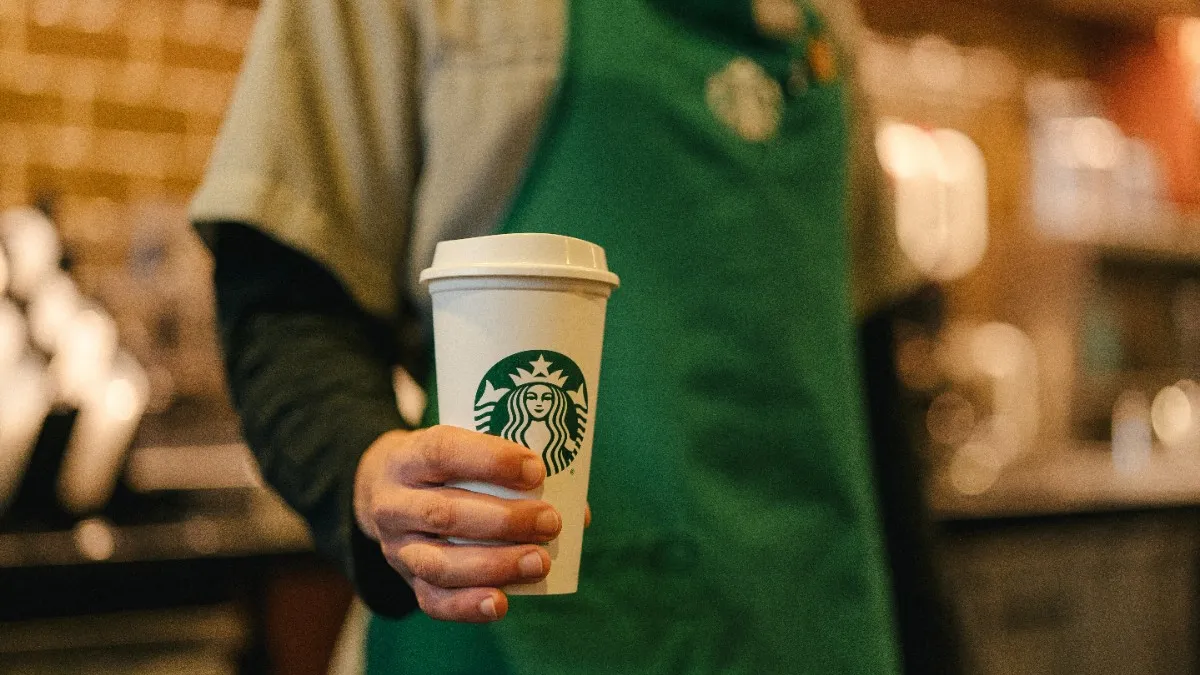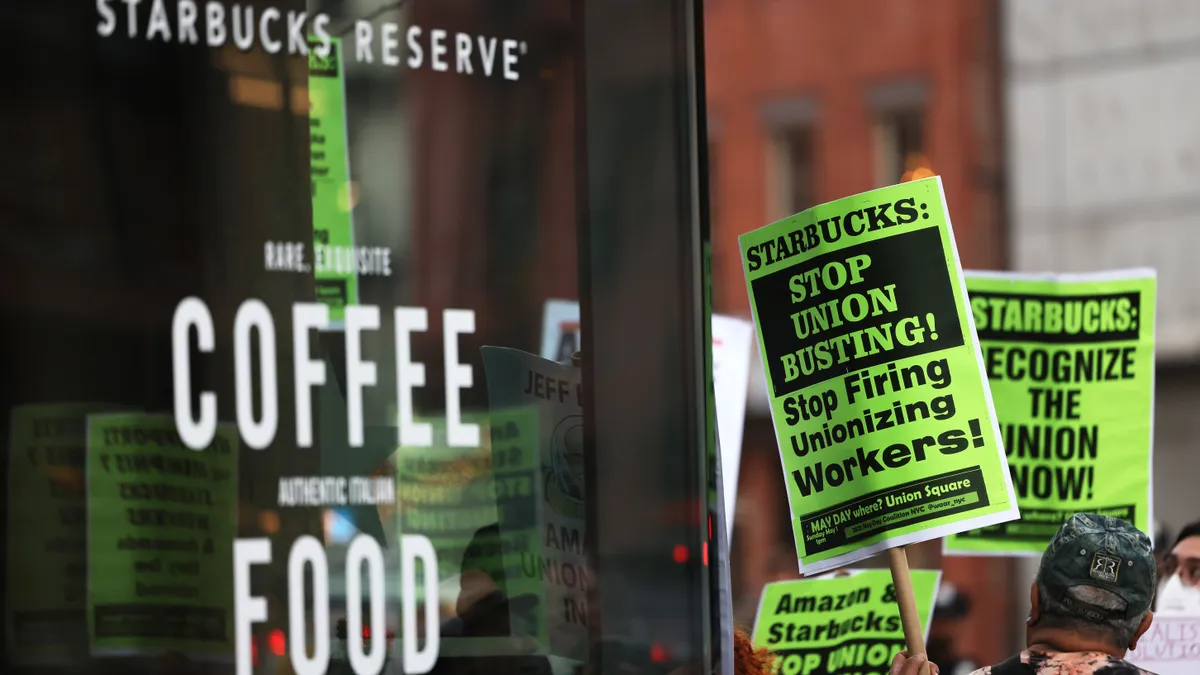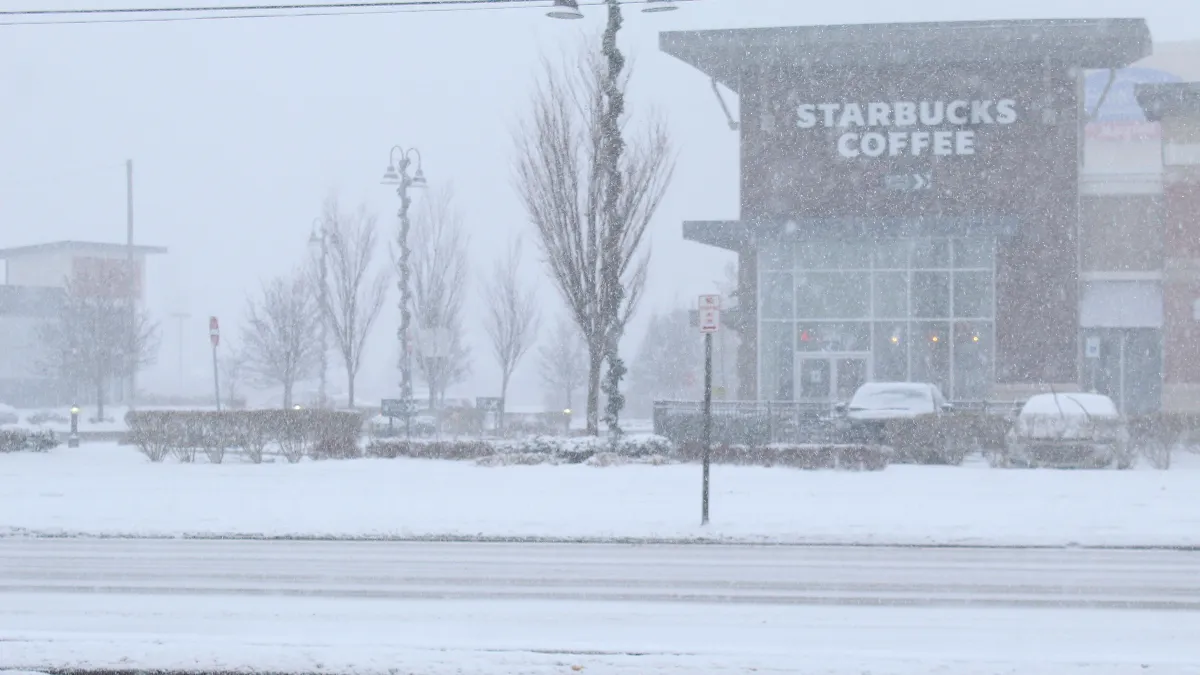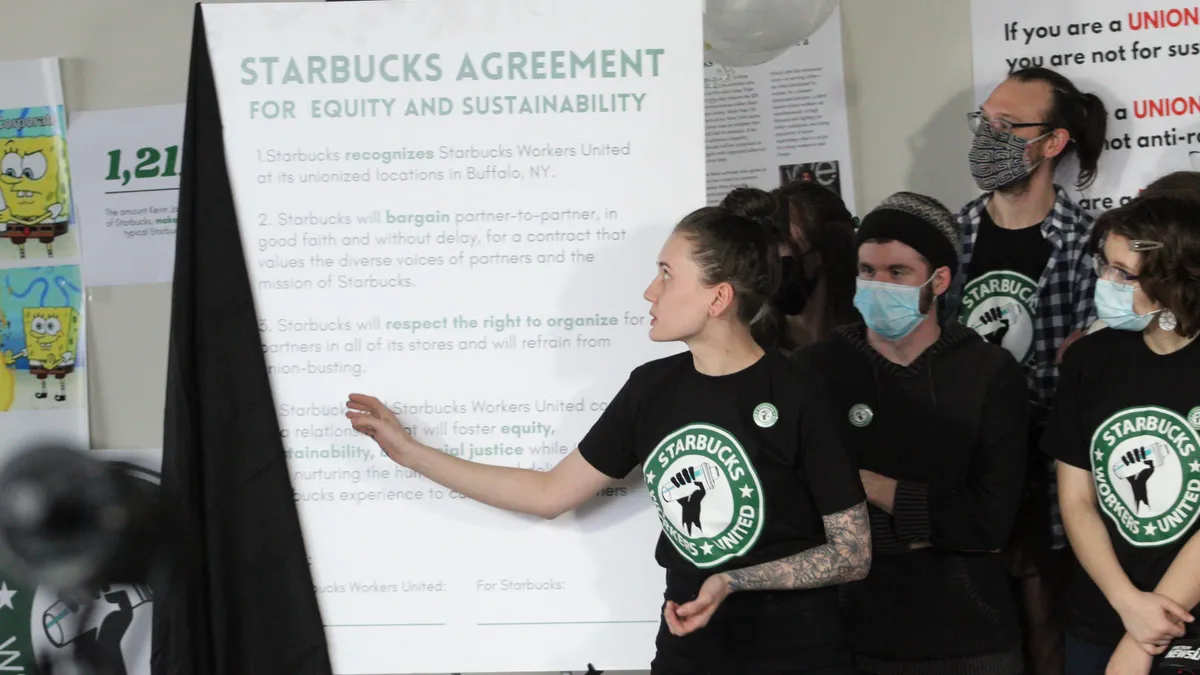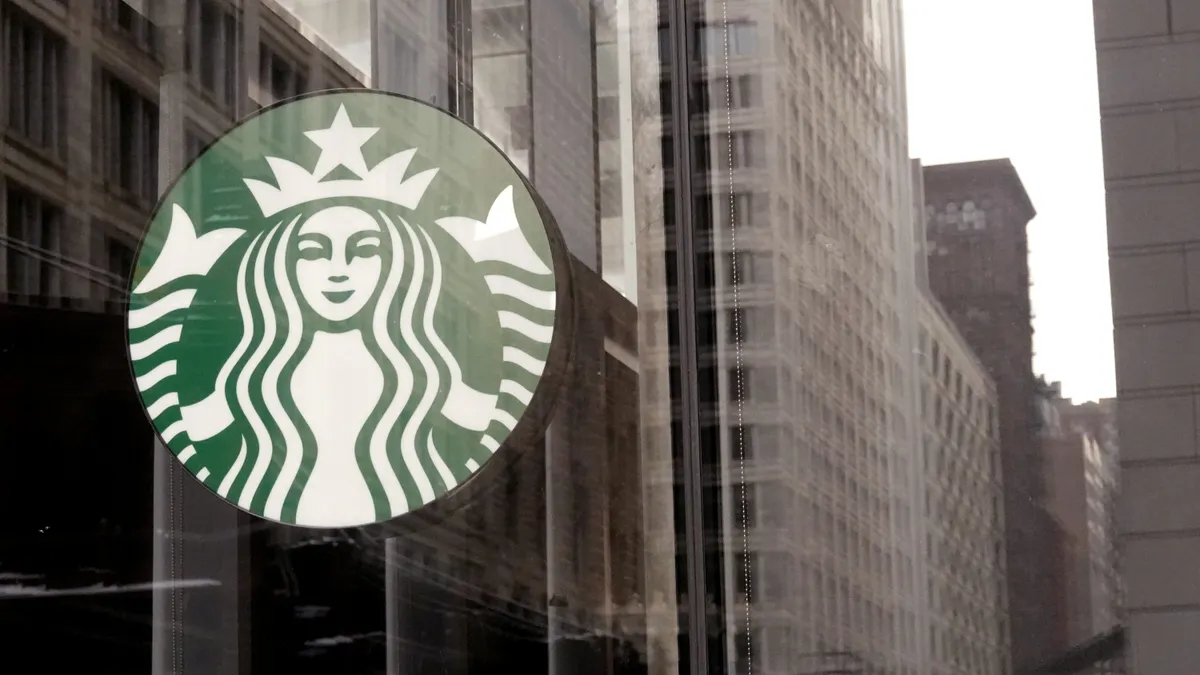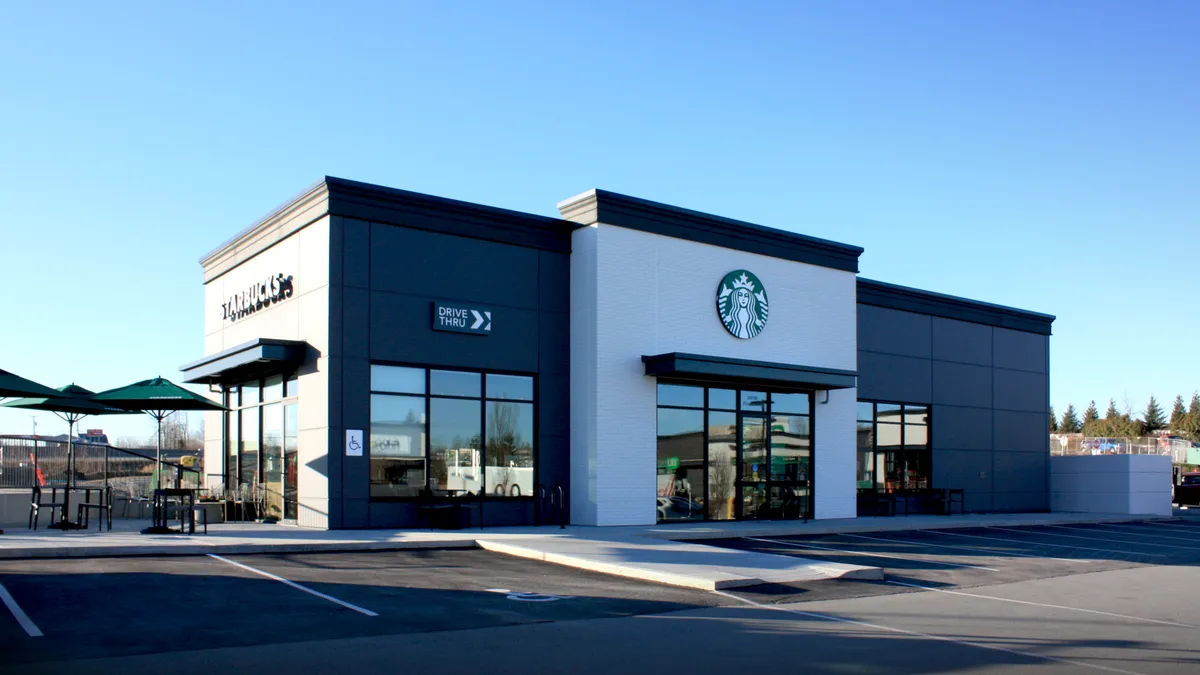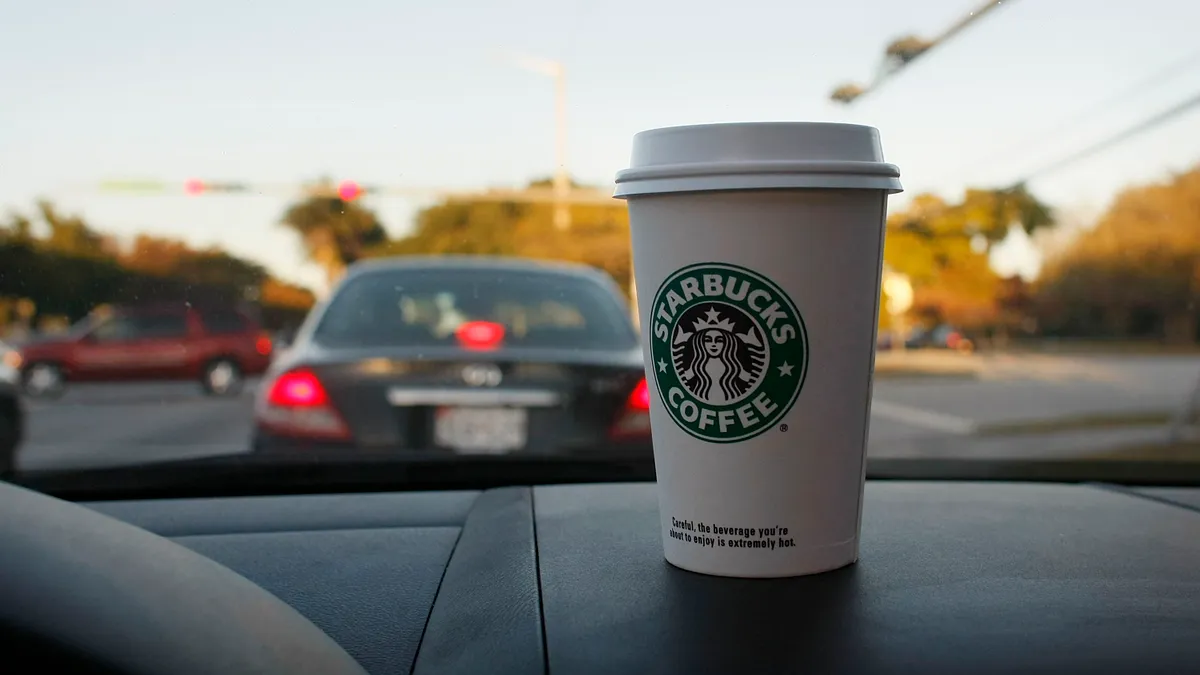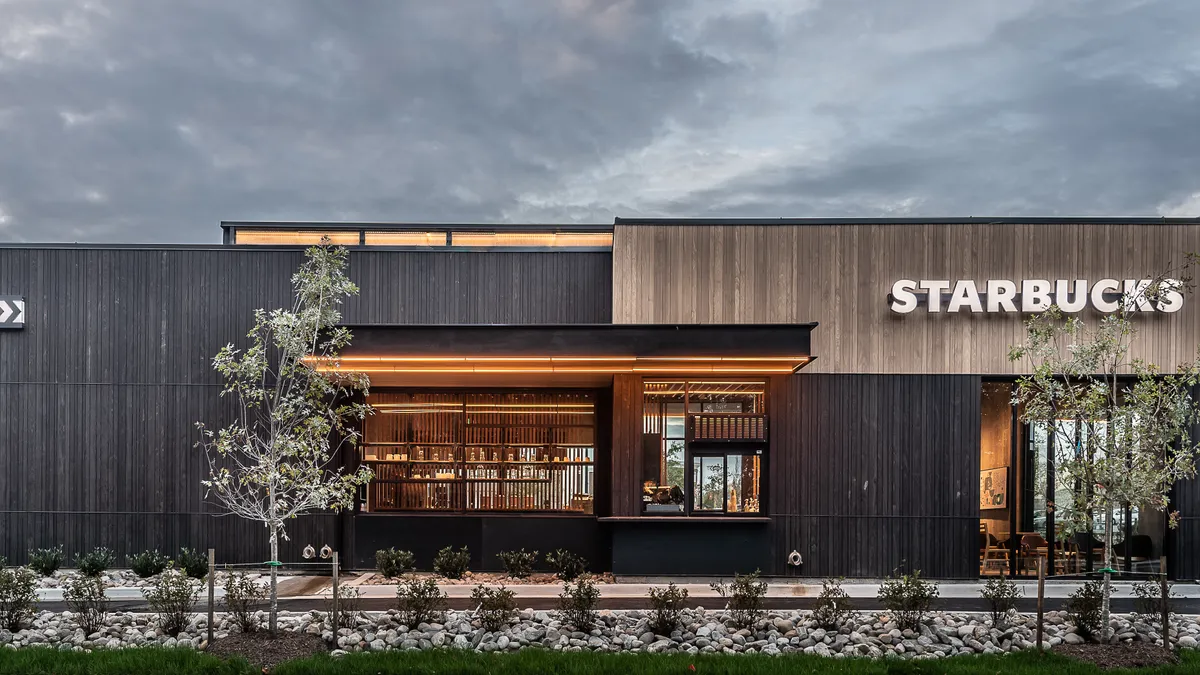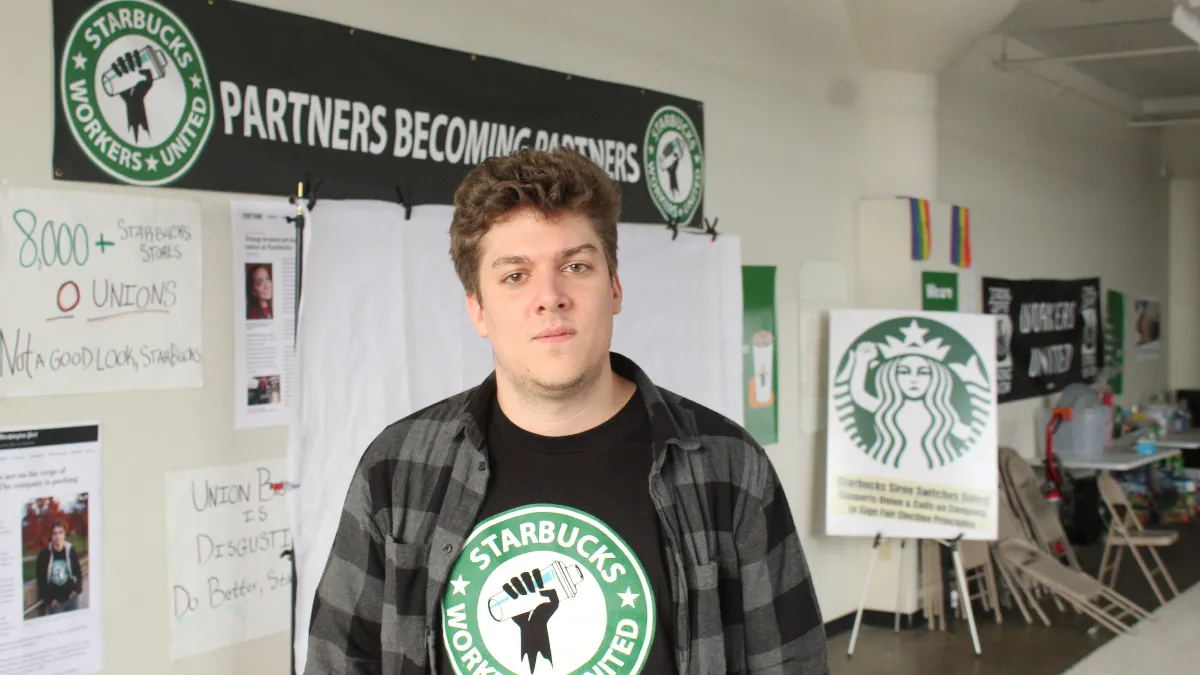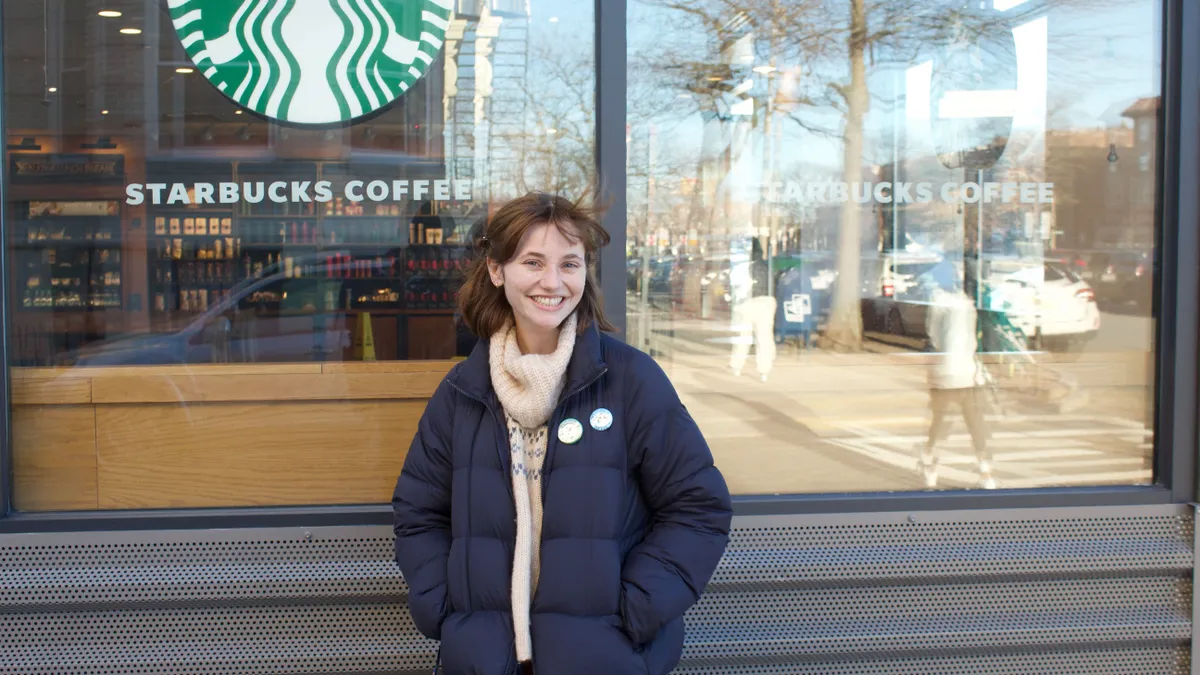Dive Brief:
- Starbucks Workers United won representation at a store in Mesa, Arizona, on Friday. This marks the second election in the ongoing union drive, and the first outside of Buffalo.
- Twenty-five workers voted in favor of the union and three voted against it, out of 43 eligible voters. Three challenged ballots were not counted, and 12 people did not vote. The election was conducted in late January and February, but the vote count — which was conducted by mail — was delayed until Friday by the National Labor Relations Board due to a request for review raised by Starbucks.
- Similar procedural issues postponed the count in three Buffalo-area stores on Wednesday, according to the NLRB. Since then, Starbucks Workers United has reached public organizing drives in more than 100 stores.
Dive Insight:
Much of the Starbucks union's momentum stems from the union's victory at the Elmwood Avenue Starbucks in New York on Dec. 9. Arizona's union win could bolster more worker support despite legal obstacles and firings the union claims are retaliation for organizing.
Reggie Borges, a spokesperson for Starbucks, said in an email to Restaurant Dive, that the company's opposition to the union was unchanged, and said Starbucks was committed to bargaining with the union in good faith.
Starbucks still opposes the union and believes workers should vote as a regional market rather than on a store-by-store basis, Borges said. The coffee chain argued this point in a request for the NLRB to review the regional director’s direction of the Arizona election. The NLRB denied that request, with three board members arguing "the petitioned-for single store unit is presumptively appropriate."
Although Starbucks Workers United has surpassed the 100-store threshold, Nelson Lichtenstein, a professor specializing in labor history at University of California Santa Barbara, previously told Restaurant Dive that that number of stores, about 1% of corporate units in the United States, is insignificant in terms of Starbucks operations.
“It would not even touch [Starbucks'] balance sheet to shut down 100 stores," Lichtenstein said. In 2018, Starbucks shut down more than 100 underperforming stores.
But, in a broader sense, the victory in Arizona has implications beyond Starbucks, John Logan a professor of labor and employment studies at San Francisco State University, said.
"We could be on the cusp of a big change for the organized labor, in which low-wage service workers are drawn, like the industrial workers of the 1930s, into the mainstream and the union movement is empowered," Logan wrote in an email to Restaurant Dive. "The union campaign at Starbucks has also provided the American public with an education in how our labor laws work."
Michelle Hejduk, a shift supervisor and organizing committee member at the Mesa cafe, said support and solidarity from the Buffalo organizers was vital to strengthening union morale.
"That they were always there, we've never felt left alone by them. And I will say that that continues with us as well, reaching out and making sure that we're helping our fellow partners," Hejduk said at a press conference hosted by Starbucks Workers United following the victory.
Organizers around the country say the spread of the union drive may have caught the company off guard.The first Buffalo campaign, and Starbucks’ response to it, pushed many workers to consider organizing seriously.
Starbucks' decision to send former CEO Howard Schultz and President of Starbucks North America Rossan Williams to dissuade Buffalo workers from organizing, for example, inspired Kylah Clay, a barista at a Boston Starbucks, to join the organizing drive.
"When I saw how strongly corporate was reacting to Buffalo, I knew it must have been something that they were afraid of," Clay said. "Once I started looking into unions and learning more about it … I thought, 'Okay, this just shows that we need a union.'"
Clay's store and another cafe in nearby Brookline, Massachusetts, were the first units to file for NLRB elections after the union clinched a victory in Buffalo. The organizing committee at her store, which filed on Dec. 13, had majority support before the Buffalo elections but waited until after the union’s victory there to go public, Clay said.
Organizers encouraging this movement have allegedly clashed with management and Starbucks corporate, however. Sydney Durkin, a shift supervisor and organizing committee member at the Broadway East and Denny Way Starbucks in Seattle, said she was issued a final written warning because she was absent the day of her store's NLRB hearing. Durkin said her employers knew she had been asked to testify at the hearing and managers were aware she would miss work that day. Restaurant Dive viewed the warning issued to Durkin, which was for a no-call no-show.
"Because I did not personally call them and say 'Hi, I'm at the hearing.' You know, the one we're all at together," Durkin said.
Durkin said she'd received one previous write-up in her six years at Starbucks, as a result of a disagreement with a district manager. Borges said Starbucks employees receive no-call no-show infractions when they don’t notify management of absences.
In Memphis, Tennessee, seven organizers were fired after they were interviewed in their cafe by local media. The union claimed the firings were in retaliation for organizing. But Borges said these organizers were fired for "egregious violations of policy" because they let reporters and partners who were off-the-clock into the store after it was closed. This behavior would normally result in termination, Borges said.
In Boston, the company also sent regional and district managers to organizing stores to hold meetings with workers, Clay said. But those meetings didn’t slow the union down, she said.
"Their initial strategy backfired, because they are sending all these corporate people into our store who we've never met before, who are all of a sudden saying, 'We're partners, we’re just like you,'" Clay said. "I think the people who are more on the fence have become more pro-union because of what corporate is doing."


